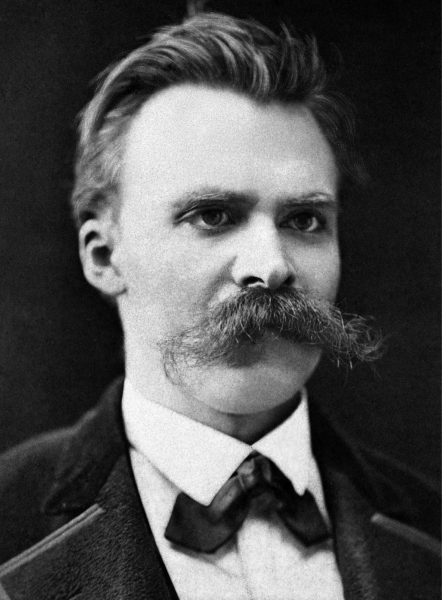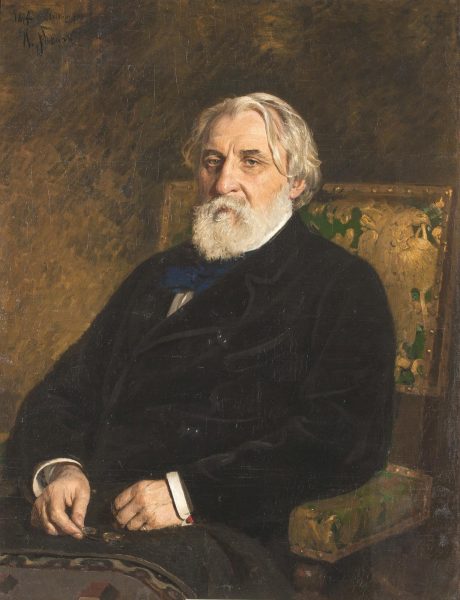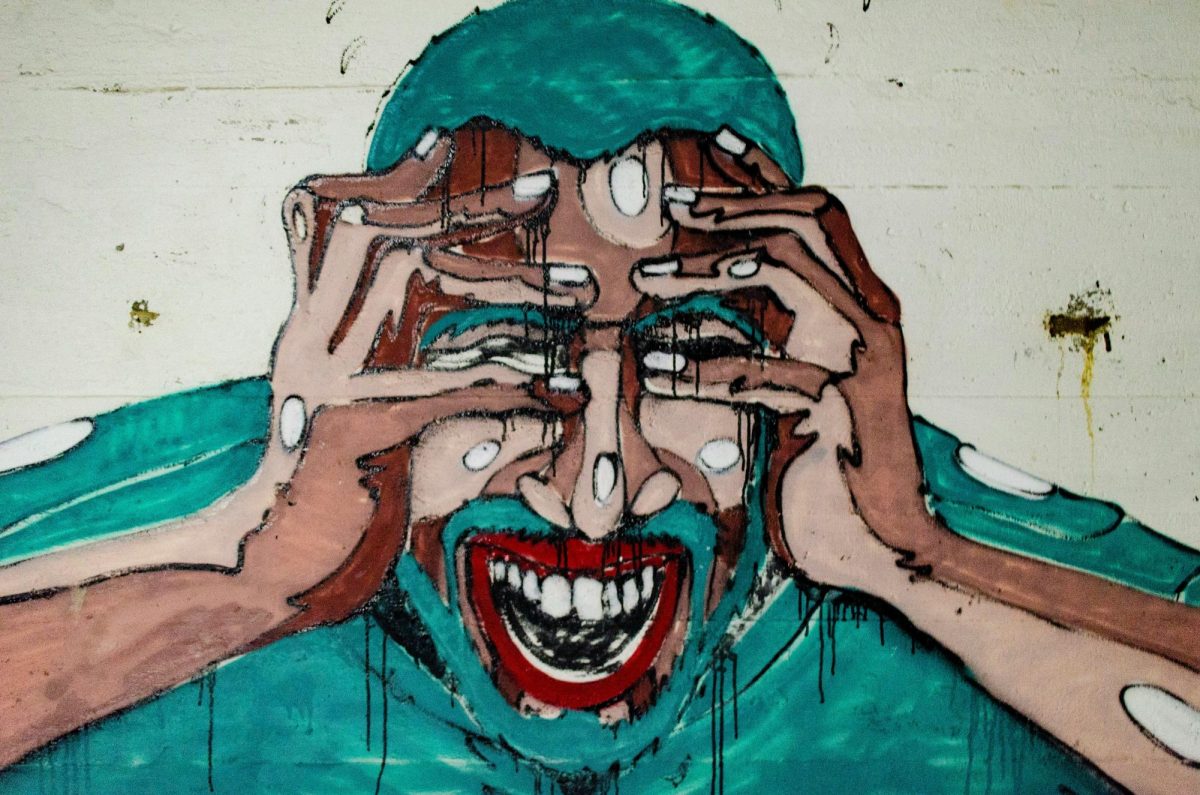The destruction of our society won’t be brought upon us by nuclear war, famine, or disease, nor will it be an alien invader or Biblical end times. It will be brought upon us by the realization of our insignificance and meaninglessness; there is no point in living if all our existence brings is unnecessary suffering and conflict. These beliefs are held by the philosophical movement of nihilism, and it is corroding our humanity, as more young people begin to accept the solemn reality that they interpret from nihilism.
The philosophy of Nihilism is the rejection of all religious and moral beliefs, more of a feeling than a philosophy — otherwise it would contradict itself; nihilism is “the rejection of philosophy, of knowledge…even existence itself.”
Issues like grief, war, and suffering are being viewed by internet users constantly. The same is true for more uplifting content. Since social media lets people see how others are living their lives, jealousy and envy can turn to self-pity and disappointment.
This is incredibly harmful for the emotional development of adolescents and the mentalities of even more mature people. The second that a person begins to let go of themselves their whole world comes crumbling down: Why bother eating if I need to look skinny? Or why try hard in school if I’m going to be outshined by someone who I’ll never be? This can affect how someone will respond to problems they face later in life and what they choose to believe. This is where nihilism comes into play, for depression and loneliness create a near inescapable void within.
Friedrich Nietzsche was the German philosopher who popularized nihilism. He wrote about how nihilism should be viewed as the explanation of nothingness in his book, The Will to Power. There is no inherent meaning to anything because there never was any to begin with: there is no god and no afterlife, so every moral is baseless. What we thought was objective reality might just be a single perspective on things. The universe is too big for anything we do to matter, so the only small hope we do have is to make meaning ourselves.

Nietzsche spoke about the “death of God” and society’s eventual downfall. He was referring to the decline of religion, whilst the soul becomes filled by the abyss he so famously spoke of: “if you stare into an abyss, the abyss will gaze back into you.”
Civilization is built on the foundation of discovery. You are reading this article for free online because of decades worth of technological breakthroughs, but nihilists would question the purpose of such advancements. Radical skepticism is the basis for the five forms of nihilism, and it threatens our modern society. The question, why bother, what’s the point? challenges what humanity has created and aspires to do, especially for the future of the Earth.
In 2021, over 50% of global youth believed that humanity was doomed to extinction. They believe that there’s no point in doing anything to fix the climate crisis, and that we should just accept our fate. 64% of people around the world believe that the government doesn’t care about what voters think. In the United States, more than 70% of people disagree that elected officials are acting in the best interest of the voters.
As mentioned previously, the basis for all forms of nihilism is radical skepticism. The difference is that the five forms of nihilism have different takes on what should be rejected.
Epistemological nihilism is the rejection of truth. Epistemological nihilists believe that human knowledge is false and based on perspective, rather than irrefutable fact. Richard Rorty, an advocate for epistemological nihilism, believed that we should not aim to find the objective truth, as it is subjective. Human intellect is flawed, and anything that we do discover, we can’t be sure is entirely true, making it pointless.
Other forms of nihilism have a wider concept of our purpose or meaning in the grand scheme of the cosmos. Cosmic nihilism is a more mainstream version of nihilism. Cosmic nihilists acknowledge the scale of the universe as being incomprehensibly large, so human values, ideals, and motives are meaningless. Any attempt we have at trying to give ourselves a purpose would be in vain; we are like pawns to ourselves in the great cosmic field. We’re too powerless and insignificant to do anything else other than speed up our own extinction to make it easier for ourselves. To understand how cosmic nihilists see our insignificance, we have to understand how vast the universe is.

(Photo Credit: NASA / Unsplash)
The Milky Way galaxy is about 100,000 light years across. In miles, the Milky Way is 600,000 trillion. The size of the galaxy is nonetheless dwarfed hopelessly by mind-bogglingly large superclusters. These groupings of galaxies can reach sizes of up to 110 million light years across, which is the size of the supercluster that we are in, the Virgo Supercluster. The Laniakea Supercluster is a structure that groups superclusters like Virgo into a singular region in space. It derived its name from Hawaii, meaning “great heavens,” and was named appropriately thanks to its immense size. Laniakea spans 520 million light years across, but the South Pole Wall, a structure that encompasses Laniakea, is an unfathomably large 1.3 billion light years across. There is reason to suspect however, that the space that harbors Laniakea and parts of the South Pole Wall is located inside the largest void in the universe. The KBC void is a relatively empty area of space that, if confirmed to exist, would be 1.5 billion light years in radius, meaning its diameter is twice as big, and we are living in it.
The inconceivably large and empty scale of the universe creates existential dread in us. This creates that powerless and insignificant feeling in the purpose of life that cosmic nihilists accept.
Ethical nihilism rejects moral and ethical values. This form of nihilism is possibly the most dangerous one to our society as it promotes radical egoism and amoralism. Radical egoism can lead to dangerous methods of thinking since people won’t care about the effects their actions have on other people and are ultimately apathetic, so long as their personal interests are being upheld. The only purpose for egoists is to promote their own ideas without regard to what is good or evil. The only goal in life is to live and make others live by your design and for your purposes. The most notable examples of radical egoists are Adolf Hitler and Joseph Stalin.
According to Dr. David Naugle, a professor at Dallas Baptist University, amoralism is “the determination to live without morality altogether.” Amoralists aren’t concerned about morals or ethics. Their duty is to live life as they wish, regardless of if their actions are justifiable or not.
Political Nihilism, or Russian nihilism, originated from 19th-century Russia. It claims that all existing political orders should be brought into question, rejected, and replaced. It is another widely known form of nihilism, because of its vast impact on Russian history.

Unlike the previous forms of nihilism – which originated with and was interpreted by Fredrich Nietzsche in 19th century Germany – political nihilism started in Russia during the 1860s. Ivan Turgenev’s book Father and Sons, stated that a nihilist is someone who “does not bow down to any authority, who does not accept any principle on faith, however much that principle may be honored.” The book’s characters believed in nothing but science; they rejected all beliefs tied to faith, which meant they rejected morals and social structure too. Bazarov, a character in the book, showed this through being egocentric and insensitive, but also independent and fearless. This appealed to the Russian youth who were suffering under the Czar, and sparked the Russian Nihilist Movement.
As a result, the term ‘nihilist’ was coined as a sneering term to call someone who questioned or disobeyed societal norms in early Russian society. The first Russian nihilists were laughed at and mocked by the upper class, yet nihilism spread among Russian youth, regardless. They created secret societies and advocated for anarchy, and extremism was commonplace in public opinion.
In 1866, when the Czar was attacked by Dimitry Karakozov in a failed assassination attempt, it was obvious to the Russian upper class that the spread of nihilism had the potential to doom their reign of power. Czar Alexander II was left with no choice but to order the persecution of all nihilists and those who interacted with them.
It became clear that nihilism, as interpreted by Friedrich Nietzsche and adapted by Ivan Turgenev, would cause the destruction of the Russian Empire and everything the Czardom had built in exchange for something new, something reminiscent of Russia before Peter the Great. The nihilists were eager to restore a time where religion, government, and even the family structure did not exist, a primitive Russia.
The Nihilist Trials saw the persecution of hundreds of young men and women, exiled to Siberia. The Third Department, a political office, conducted secret police raids for even the smallest interactions with nihilists. Nevertheless, this failed to delay nihilism’s spread in Russia. Instead, in one such nihilist trial in 1882, the New York Times reported that, of 20 indicted, 15 were highly educated people including: lawyers, doctors, navy, and army officers. This proved that nihilism’s spread was no longer exclusive to lower social classes, but reached out to even the military.
Looking back on this historical event, extremism running rampant, liberal ideals spreading to bring about new forms of government, dissatisfaction with the current state of their world, and public displays of rebellion, do you notice anything familiar?
History is repeating itself, but this time it won’t be restricted to a single country. All around the world, people feel that current ideologies have grown obsolete in terms of problem solving. Similar to the revolution by the Russian youth, young people today are pushing the boundaries of what is acceptable.
The Pentagon even conducted a wargame that simulated Gen Z’s extremism and political nihilism as being a threat to America. In this scenario, the Pentagon predicted that current trends of dissatisfaction in the American government would peak in a “Zbellion”, a theoretical revolt where Gen Z would take matters into their own hands as they believe that all hope is lost in the government.
For the medical world, the rise of nihilistic views are signifying severe mental disorders, like Cotard’s delusion, also known as Walking Corpse Syndrome. Cotard’s delusion is a condition where the affected person believes that they are literally a walking corpse slowly decaying from the inside.
This rare psychiatric disorder can be caused by nihilism as it leads the person to believe that their existence is worthless. It contributes to depression that accompanies the delusion of being “dead or rotting away.”
The loneliness epidemic has only worsened, with ties to nihilism. According to the U.S. Surgeon General, people are communicating less, with people aged 15-24 experiencing a 70% decline in time spent with friends. In the same report, it found that Americans were spending less time in the community than ever recorded. Adding insult to injury, isolation and loneliness increase the risk of premature death by more than 60%.
In 1959, Viktor Frankl, author of Man’s Search for Meaning, said there would be “an enormous increase in the leisure hours available to the average worker. The pity of it is that many of these will not know what to do with all their newly acquired free time.” Sixty years later, his statement is truer than ever, especially during the Coronavirus pandemic lockdowns, with the rising popularity of the four-day work week.
Workers on a four-day schedule are reported to be happier on average compared to workers on a five-day week. However, the American Psychological Association reported that in the long term, people who have more free time than they need become dissatisfied with themselves. Those who engage in unproductive activities such as watching television or using a phone also experience more dissatisfaction.
Children and teens are spending on average 7.5 hours a day on screens while adults are spending more than 4 hours. Children under 2 years old shouldn’t have any screen time at all and anyone over 2 years old should receive a maximum of 2 hours of screen time a day before they worsen their mental health severely.
Being online for more than the daily recommended screen time could cause insomnia, anxiety, depression, and an increased risk for obesity.
The human mind ceases its search for a greater purpose since all the person does anyways is stay locked on to a screen. “The pursuit of happiness is replaced by the pursuit of fun” and people stop feeling truly connected to their surroundings and peers. These conditions are where radical skepticism and meaninglessness, the stepping stones to nihilism, are nurtured to fully take form to negatively affect the mind.
There is one more form of nihilism not yet introduced, existential nihilism, also known as optimistic nihilism.
Optimistic nihilism is the combination of existentialism and nihilism. This form of the nihilist philosophies states that there is no inherent meaning to life. This just means that everything we can interact with our five (or six) senses has no deeper meaning other than just to exist for the sake of things. However, whereas a regular nihilist would accept this truth and think less of life, an existential nihilist sees opportunity to inject meaning into things. It is in the absolute void of nothingness that we have absolute freedom.
Optimistic nihilists are hopeful compared to the other forms of nihilism, hence the name, and thus makes it less likely to produce radicalism.
The issue however, is that nihilism is rising not because of a sole cause like phones or stress; it is rising because of a combination of factors such as climate dread, burn-out from school, social pressures, and mental health freefalls. The rise of nihilism is a side-effect of modern society.
The loneliness epidemic continues to worsen and churches are losing their members, leaving many with a materialistic way of life. The search for the unknown no longer appeals to the greater public and as a result, more of us are losing faith that there is life beyond the grave, an aspect that when lost, increases the likelihood of falling to nihilism.
The five forms of nihilism have the potential to pose a great threat to human society: radicalism born from desperation to find something new (political nihilism), the loss of morals (ethical nihilism), insignificance breeding hopelessness (cosmic nihilism), and questioning truth as mere perspective (epistemological nihilism). Our society may get lucky and instead of accepting nothingness as truth, will try to provide meaning and purpose for ourselves (optimistic nihilism).
The only hopes left for our society would be if there was a dramatic shift in global mentalities. Nihilism isn’t a problem tied only to a single region or age. It’s not the result of hormonal teens, nor is it the result of laziness.
Nihilism is an issue we have to address as a species to be able to continue moving forward to our wildest dreams. The curtains have not closed, and the stage is still primed for us to decide where we will take ourselves.
It is in the absolute void of nothingness that we have absolute freedom.

